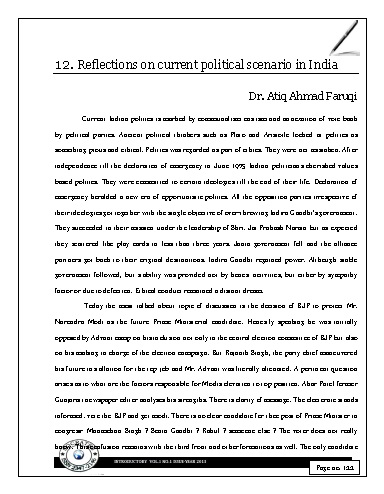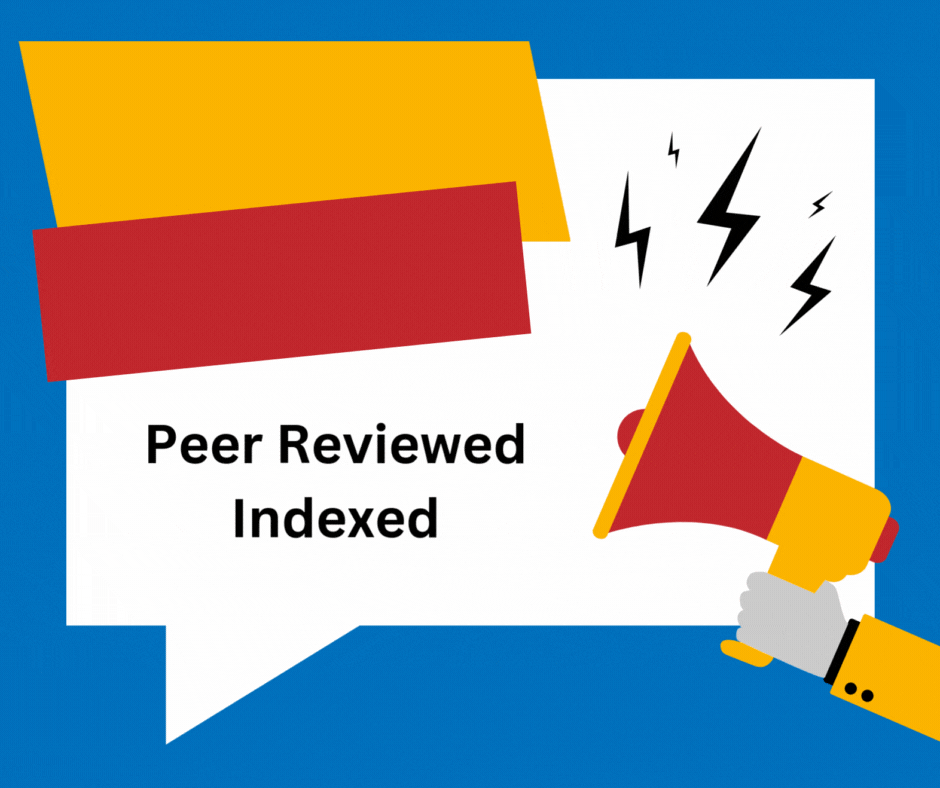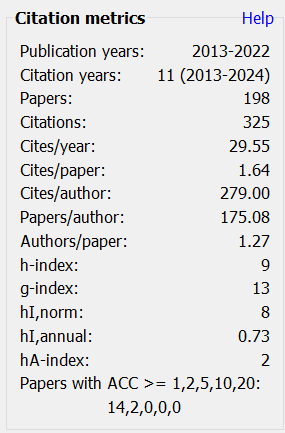Reflections on current political scenario in India
Keywords:
current political scenario, communalism, castism, political parties, political thinkers, Plato and AristotleAbstract
Current Indian politics is marked by communalism castism and annexation of vote bank by political parties. Ancient political thinkers such as Plato and Aristotle looked at politics as something pious and ethical. Politics was regarded as part of ethics. They were not mistaken. After independence till the declaration of emergency in June 1975 Indian politicians cherished values based politics. They were committed to certain ideologies till the end of their life. Declaration of emergency heralded a new era of opportunistic politics. All the opposition parties irrespective of their ideologies got together with the single objective of over-throwing Indira Gandhi’s government. They succeeded in their mission under the leadership of Shri. Jai Prakash Narain but as expected they scattered like play cards in less than three years. Janta government fell and the alliance partners got back to their original destinations. Indira Gandhi regained power. Although stable government followed, but stability was provided not by honest activities, but either by sympathy factor or due to defection. Ethical conduct remained a distant dream.
Downloads
Metrics
References

Downloads
Published
How to Cite
Issue
Section
License
Revised Copyright/CC license that applies to all the articles published after 05-02-2017
Attribution-NonCommercial 4.0 International (CC BY-NC 4.0)

Copyright/CC license that applies to all the articles published before 05-02-2017
Attribution-Non Commercial-No Derivatives 4.0 International (CC BY-NC-ND 4.0)

Author(s) will retain all the right except commercial and re-publishing rights. In the case of re-publishing, they will have to obtain written permission from the journal. Additional licensing agreements (Creative Commons licenses) grants rights to readers to copy, distribute, display and perform the work as long as you give the original author(s) credit, they can not use the works for commercial purposes and are not allowed to alter, transform, or build upon the work. For any reuse or distribution, readers and users must make clear to others the license terms of this work. Any of these conditions can be waived if you get permission from the copyright holders. Nothing in this license impairs or restricts the authors’ rights. To view a copy of this license, visit http://creativecommons.org/licenses/by-nc-nd/4.0/ or send a letter to Creative Commons, 171 Second Street, Suite 300, San Francisco, California, 94105, USA.
Research Papers published in SOCRATES are licensed under an Attribution-NonCommercial-NoDerivatives 4.0 International (CC BY-NC-ND 4.0)












